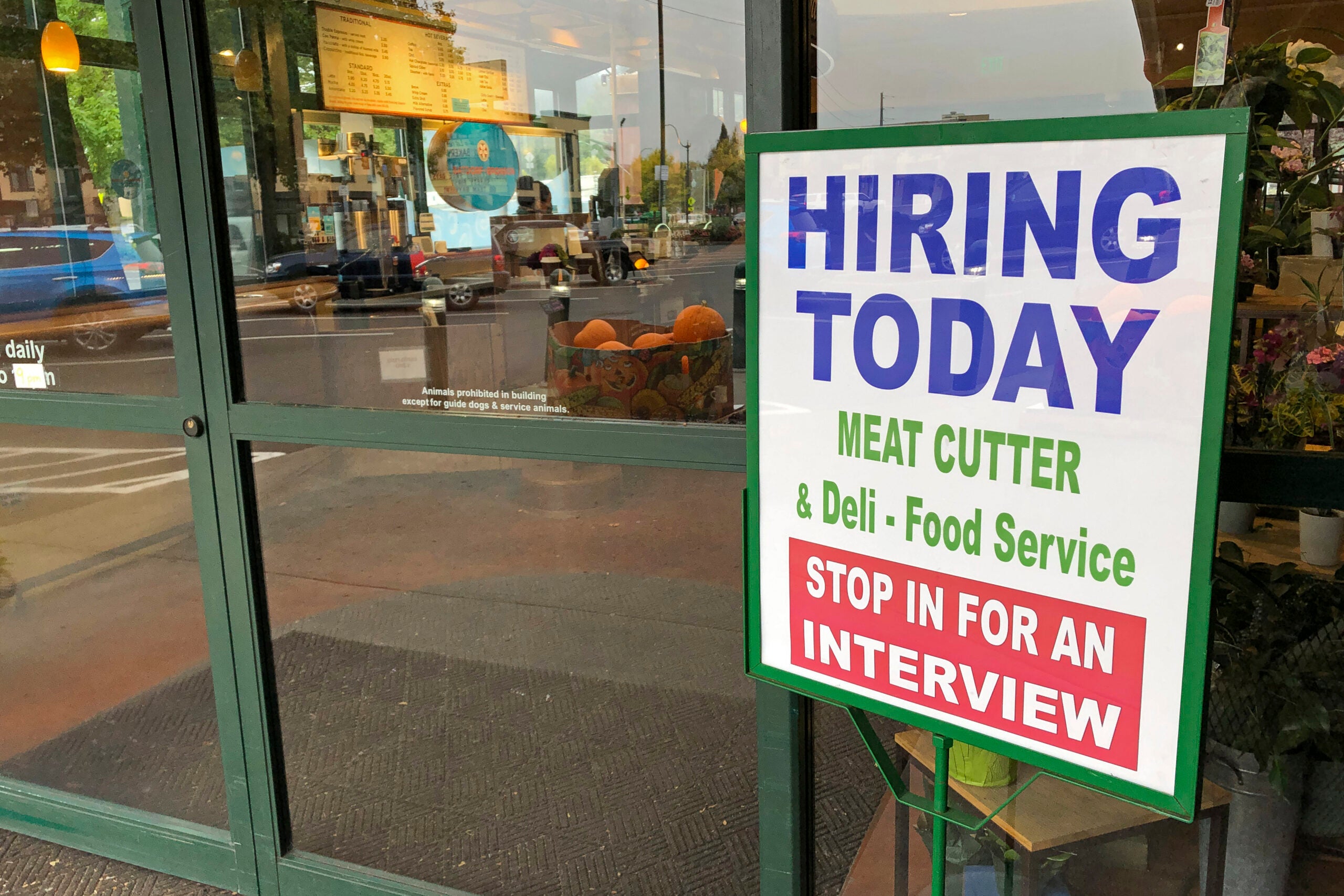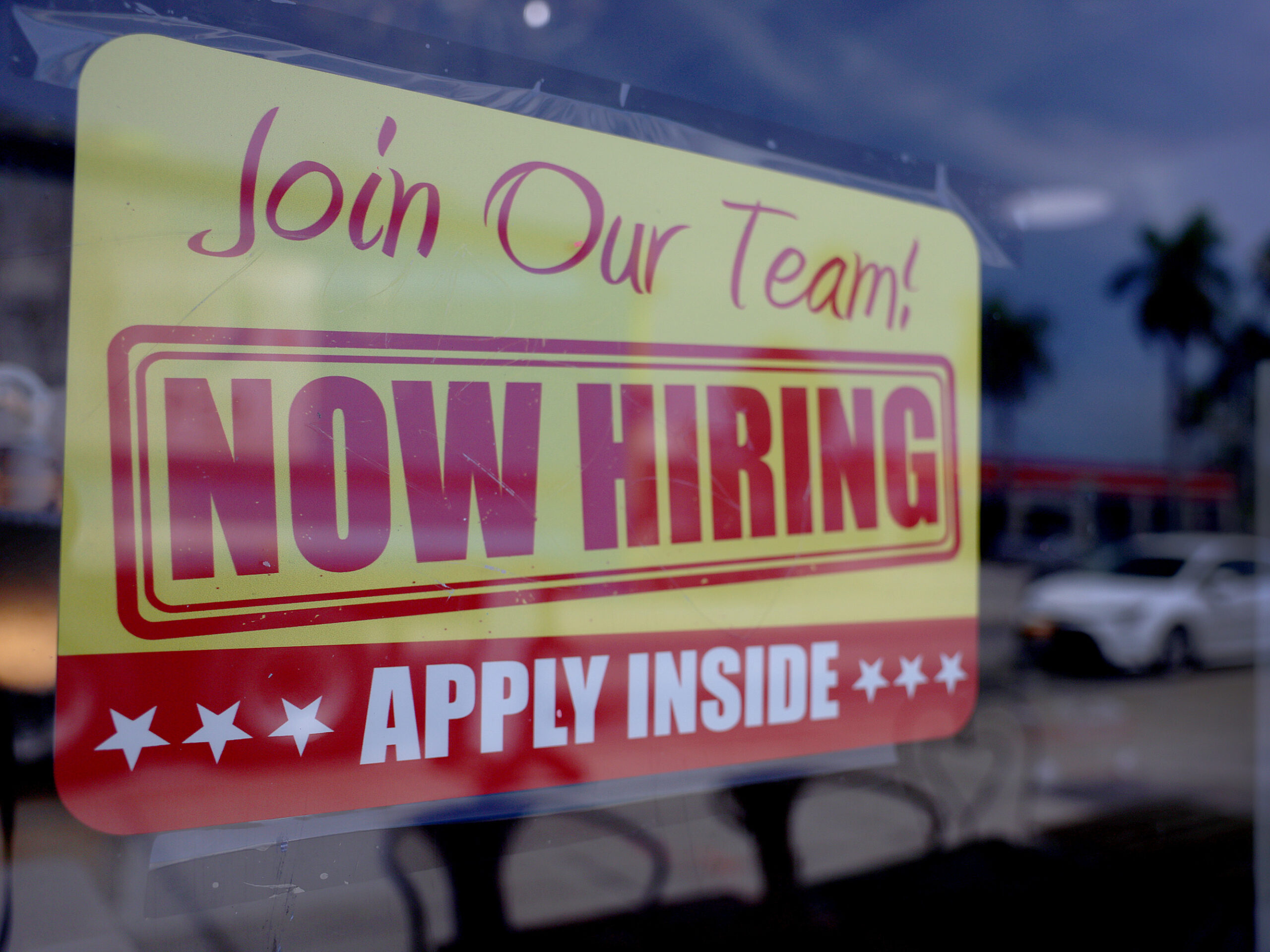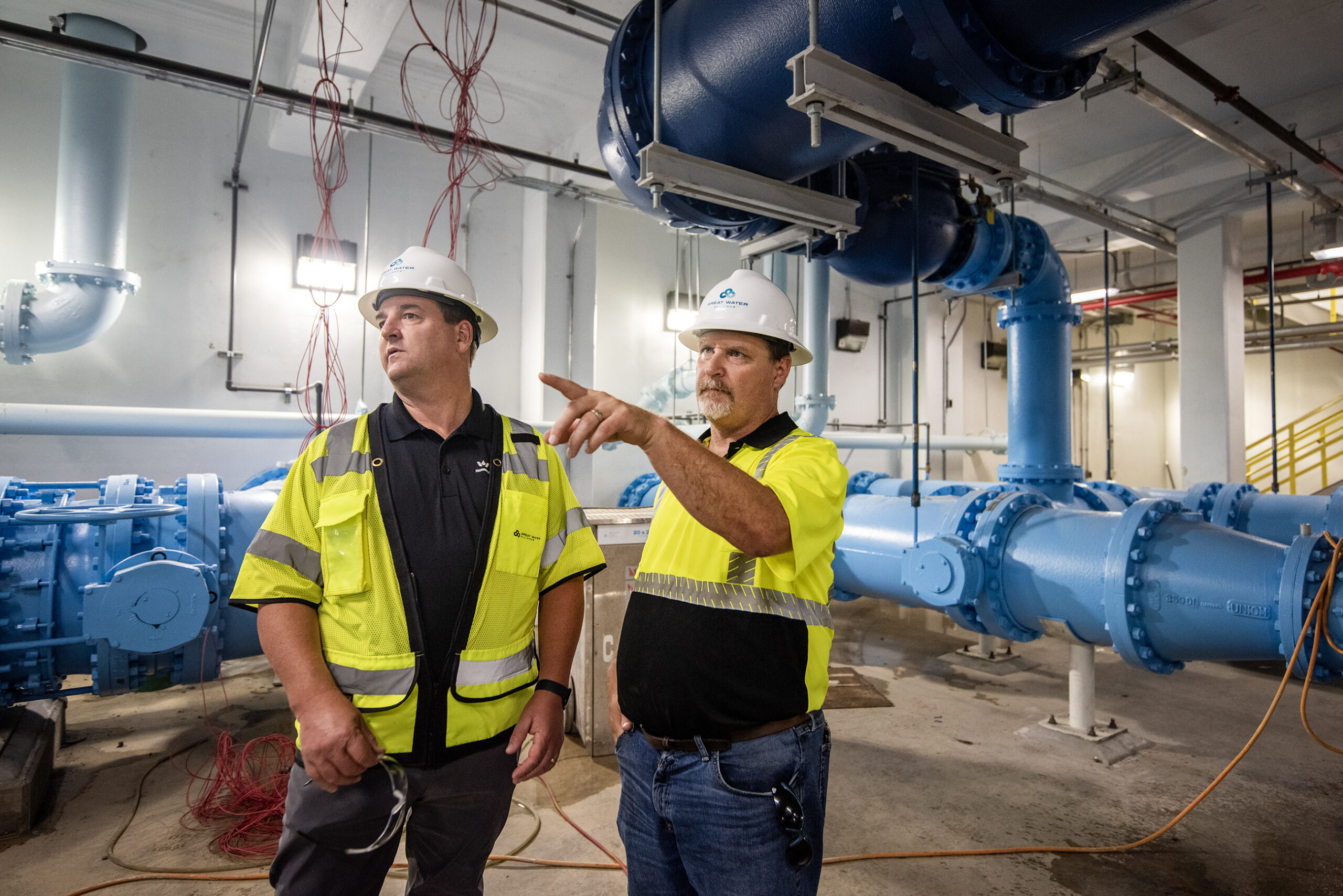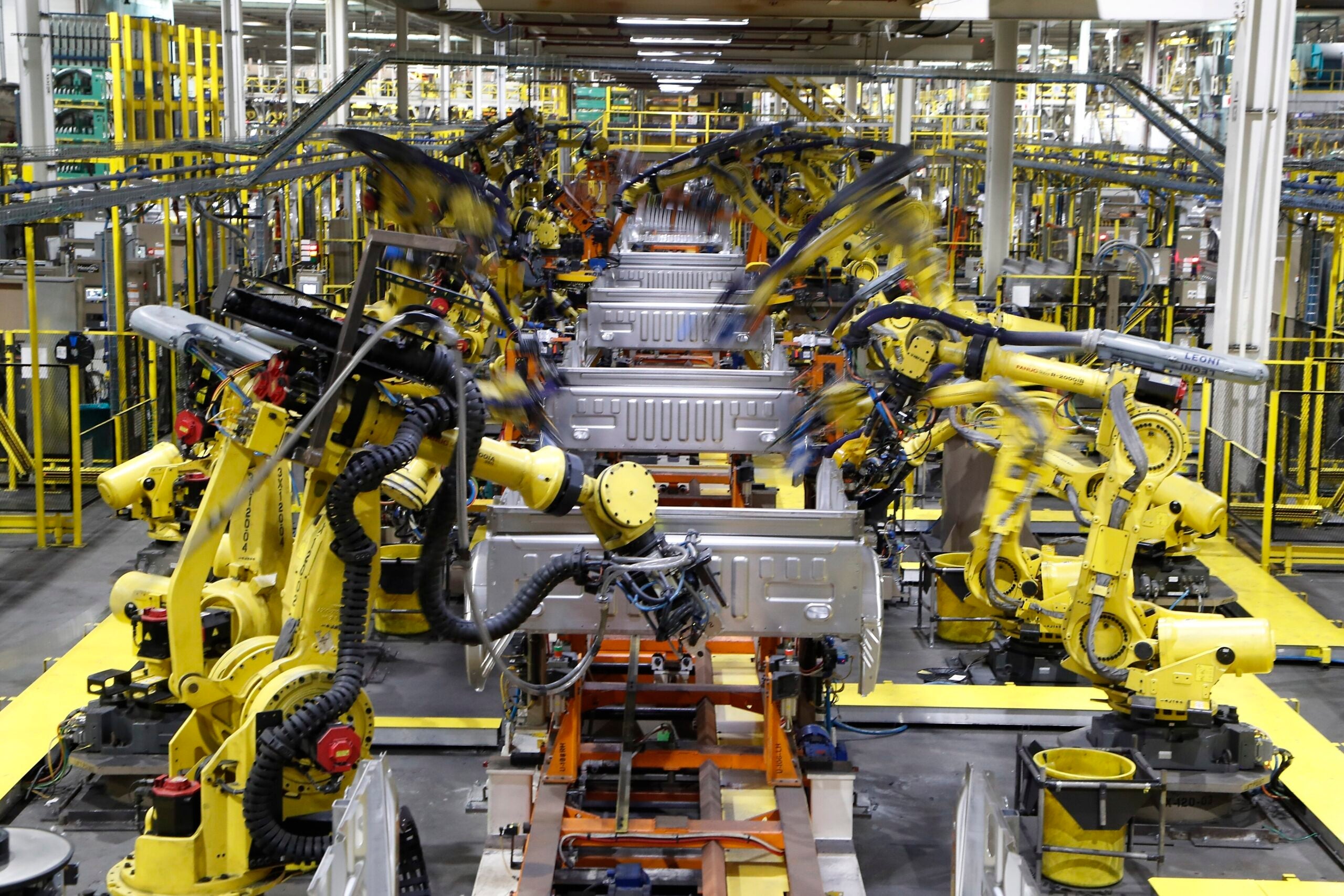Tens of thousands of people remain out of work in Wisconsin as a result of the economic upheaval caused by the coronavirus pandemic. So for those who are looking for a new job, what are the industries that are hiring in the state right now?
Between Oct. 2 and Nov. 1, the jobs with the most online listings in Wisconsin were heavy and tractor-trailer truck drivers, registered nurses, retail salespeople, retail supervisors, and stockroom clerks, according to a job posting tracker from Emsi, a data analytics company which compiles data using online job listings.
Stay informed on the latest news
Sign up for WPR’s email newsletter.
The industries in Wisconsin with the most online job listings according to data from Emsi include administrative and support services; truck transportation; professional, scientific and technical services; ambulatory health care services; and food services and drinking places.
Emsi cautions that the number of postings may not reflect the actual numbers of hires made by employers, and that postings can be higher than the number of actual hires made when an employer is trying hard to find employees. The company also said that the number of postings might underrepresent jobs that don’t often post online ads, like roofers or welders.
Steve Deller, a regional economist at the University of Wisconsin-Madison’s Department of Agricultural and Applied Economics, agreed that data using online job postings leaves out an important component of hiring for many businesses: word of mouth.
“It is extremely important to keep conversations with friends and neighbors and family members to find out about employment opportunities,” he said. “Many of the businesses throughout Wisconsin are not necessarily doing formal job searches … they are advertising through word of mouth, and the more connected you are in the network, the better.”
Deller added that having more education makes a person more competitive for almost any job.
“If you find that you’re laid off because of COVID, now might be a good time to take a couple online classes, or face-to-face classes if that’s available and you feel comfortable with that, to kind of get a little additional training under your belt,” Deller said. “That always makes you look more attractive to a potential employer.”
Deller said any industries that require large gatherings of people are ones that may not have many prospects for job-seekers right now.
“Those types of industries I think are going to be continuing to struggle because … the majority of people, not everybody, but a large percent of the population does not want to go to places that have large gatherings,” he said. “Things like restaurants, taverns, water parks.”
Still, there are important regional differences in hiring. Below are conversations with experts on the state’s regional economies about hiring trends across the state.
Northwestern Wisconsin
Mari Kay-Nabozny, CEO of the Northwest Wisconsin Workforce Investment Board, said in an email that her organization often hears from employers in three main sectors who say they are “struggling to find the workers they need to meet demand”: hospitality, retail, and the service sector, which includes businesses like restaurants.
“Northern Wisconsin continues to see many visitors to communities as tourists look to small nearby destinations that lend themselves to social distancing,” Kay-Nabozny said of the region’s need for hospitality workers. “Industries that serve those visitors often have high turnover rates in non-pandemic times, and now there are workers with health concerns or other reasons for not wanting to return to or remain in these sectors due to the high personal contact that is necessary.”
Long-term care providers are also having a hard time finding skilled and credentialed employees, she said.
Businesses that are seeing a slowdown, according to Kay-Nabozny, include restaurants, shops and hotels that have “opted to close temporarily until the season push with winter sports and travel begins.”
For individuals interested in training courses or classes at a local community college, she said some may be eligible for funds to cover tuition in northwestern Wisconsin. Anyone interested in this funding can reach out directly to the Northwest Wisconsin Workforce Investment Board.
Kay-Nabozny also pointed to online GALE courses that are available in most library systems across the Northland and free for those with a library card in good standing.
North Central Wisconsin
Some of the industries hiring the most in north central Wisconsin include manufacturing, transportation and healthcare, according to Jane Spencer, executive director of the North Central Wisconsin Workforce Development Board.
“Wisconsin is still about making products, and the products need to be shipped,” Spencer said in an email about the hiring in manufacturing and transportation.
Derek Heikken, business services director at the organization, said he expects hiring in those sectors to continue until at least next spring.
Some jobs in manufacturing only need a high school education, Spencer said, while others in the industry, along with, transportation, and healthcare require post-secondary training.
She added that the industries with the slowest hiring in the region include the construction industry, education, and forestry.
As industries in the region continue to adopt new technology that puts some jobs at risk, Spencer said workers should consider jobs that use computer-related skill sets, like programming and data analytics, or skilled-trade positions.
She pointed to the state Department of Workforce Development’s online job center as a good place to start for people looking to figure out the next step in their careers.
Fox Valley
In Fox Valley, Fox Cities Chamber of Commerce’s Vice President of Economic Development and Government Affairs Jayme Sellen highlighted job openings in sales, transportation, manufacturing and healthcare in an email.
“That definitely supports what we hear from area manufacturers and health systems,” Sellen said.
She said hospitality businesses like restaurants, hotels and attractions are slow in hiring currently, and she anticipates the slowdown to continue “as outdoor patios close due to the change in seasons.”
For those looking for training opportunities, Sellen recommends reaching out to the Fox Valley Technical College to ask about partnerships specific employers have with the college. She added there could be “opportunities to receive a credential with assistance from an employer.”
Central Wisconsin
Angel Whitehead, president of the Heart of Wisconsin Chamber of Commerce, said central Wisconsin is seeing a need for workers in healthcare, manufacturing, childcare, and agriculture.
On agriculture, Whitehead points out that farms aren’t only looking for general laborers, “they also look for things such as marketing, data analysis, financial.”
“Even though it’s an agriculture industry…they still hit all of those facets that are needed for them to do business well,” Whitehead said.
She said there are jobs available for a range of skill sets, adding that many employers are willing to train employees.
“We have some great post-secondary education here,” she said, pointing to Mid-State Technical College, the University of Wisconsin-Stevens Point and Lakeland University, many of which partner with local industries. “You can easily turn around and get (training) very quickly so you can jump into that job right away.”
Western Wisconsin
Melisa Myers, executive director of the Western Wisconsin Workforce Development Board, said in an email that hiring is taking place across many sectors in western Wisconsin, but pointed specifically to manufacturing, construction and transportation.
The hiring needs have intensified during the pandemic, Myers said, with certain people unable to work, like those with health risk factors that put them at greater risk of potentially deadly complications if they contract the virus, or those who are unable to work while their children are doing remote-learning.
In part because of that, she expects the need for workers to stay high in the area through the end of the year.
Myers noted that there are positions open for all skill-levels, and many local employers are willing to do on-the-job training.
For those trying to get started in a new field, she recommends reaching out to Workforce Connections, a nonprofit that provides employment and job training programs based in La Crosse that services a number of western Wisconsin counties.
Myers said the organization runs a dislocated worker program that can help someone “find employment, assist with training, or help folks (who are) underemployed.”
Southeastern Wisconsin
In southeastern Wisconsin, Susan Koehn, vice president of talent and industry partnerships at the Milwaukee 7 Regional Economic Development Partnership, pointed to a recent survey from ManpowerGroup on employers’ hiring outlook in the Milwaukee, Waukesha and West Allis area for the end of the year. According to the results, employers said they expected to hire in nondurable goods manufacturing, transportation and utilities, and wholesale and retail trade, among other sectors.
Only 16 percent of employers said they planned to hire between October and December, according to the results. Seven percent expected to reduce their workforce over the same time period, while the vast majority — 75 percent — said they expected to maintain the same staffing levels.
Koehn said she’s observed hiring spikes at grocery stores and warehouses as the pandemic keeps many Wisconsinites out of restaurants, and also pointed to growth in manufacturing.
“Manufacturing remains a key employment sector in (southeast) Wisconsin, and while individual employers have experienced layoffs, there are others hiring in high volumes,” she said in an email.
Koehn noted that anecdotally, “hiring opportunities seem more plentiful for entry-level or lower-skill positions, like stock clerks, warehouse (workers), delivery workers, drivers …”
She said she expects hiring to remain weaker over the next few months in industries that continue to face uncertainty related to COVID-19, including hotels, restaurants, theaters and jobs related to sports.
Koehn also highlighted local technical colleges and universities as good places for people out of work to get training for new jobs. She said dislocated workers are eligible for free or subsidized training in some cases, and added that for a job in high-demand, employers will often cover some of the cost of training.
South Central Wisconsin
Seth Lentz, executive director of the Workforce Development Board of South Central Wisconsin, said in an email that healthcare, manufacturing, information technology and finance are driving the economy in south central Wisconsin.
“Anecdotally, we are hearing from industry leaders and partners that manufacturing is the largest industry sector driving hiring activity right now,” Lentz said, adding that manufacturers are trying to catch up with new demand caused by the pandemic.
He said the demand he’s observing in the manufacturing sector is for entry-level positions, like assemblers, packers, and customer service workers, noting that many pay between $15 and $18 an hour.
Lentz also said the construction industry is continually looking for skilled workers, despite the fact that the season is winding down as it gets closer to winter.
For IT and finance jobs, Lentz said positions vary by skill and education level, but many employers are bringing in entry-level employees and then working with them on advancement.
Hotels and restaurants in the region have been hit particularly hard by the economic effects of the outbreak, and by extension, have seen a higher rate of layoffs in the region, he said.
“Our business partners in industries such as manufacturing have been adamant that the one thing they are looking for (is) the transferable skills, and they have reached out to us specifically to try and tap into pockets of those hospitality and retail workers recently displaced by layoffs and business closures in order to get them to consider roles within their companies,” Lentz said.
He highlighted skills like customer service, communication, dependability and attention to detail as some that employers see value in.
Lentz said displaced workers can get assistance from the Workforce Innovation Opportunity Act’s Dislocated Worker Program. Career planners help workers with resumes, interviewing skills and the job search process free of cost.
Wisconsin Public Radio, © Copyright 2024, Board of Regents of the University of Wisconsin System and Wisconsin Educational Communications Board.






